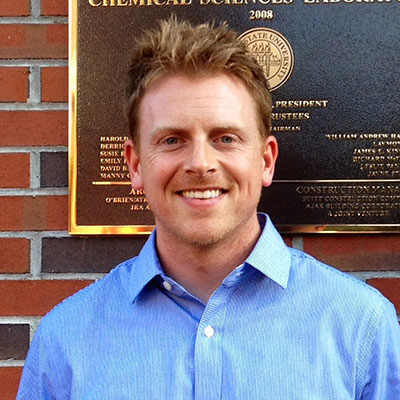
Sometimes the path to tackle one question in science leads to an answer on a totally different question.
That is what happened when a team of Florida State University researchers began looking for ways to synthesize natural products that could potentially serve as a treatment for cancer and neurological diseases.
In doing that work, Assistant Professor of Chemistry James Frederich developed a process to add a molecule of methane to a chemical compound at a specific site. While it may sound like a technicality to a non-scientific audience, the process is extremely complex and a vital part of synthesizing natural products.
This site-specific addition of methane is a valuable strategy in synthesizing potential drugs because it can optimize the pharmacology of bioactive small molecules. It happens frequently in nature, but it has been difficult to achieve in the laboratory.
“This is basically setting out rules of how to install methane in a site-specific way,” Frederich said. “This is chemistry that can be used by many others in their work now. It’s a key step to help finish the synthesis process.”
Frederich’s work is published in the journal Angewandte Chemie and highlighted as a “hot paper” by the journal.
Frederich and his lab have been focused on the synthesis of a natural product that comes from the fungus Fusicoccum amygdali because it shows promise in treating cancer. However, they quickly realized the process they developed could work more broadly and experimented on hydrocarbon compounds derived from ammonia and ones containing alcohol, ethers or insecticides.
Frederich said he and his team realized that when it worked so well on their system, that they needed to test it out on a variety of compounds.
“When you come across something like this where all the other previous methods don’t work, I think it’s something that you have to develop,” he said.
This work was funded by the National Institutes of Health.
Other authors on the paper are FSU graduate student James Law and former FSU undergraduate student Noah Bartfield, who is now pursuing graduate studies at Yale University.




